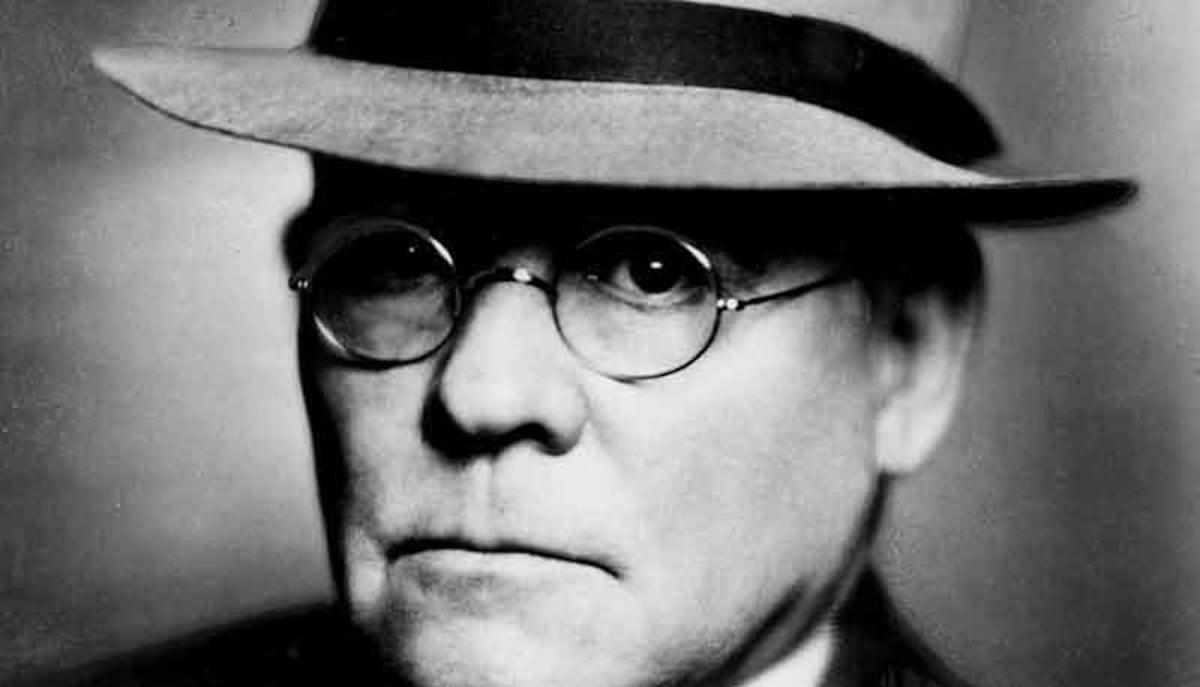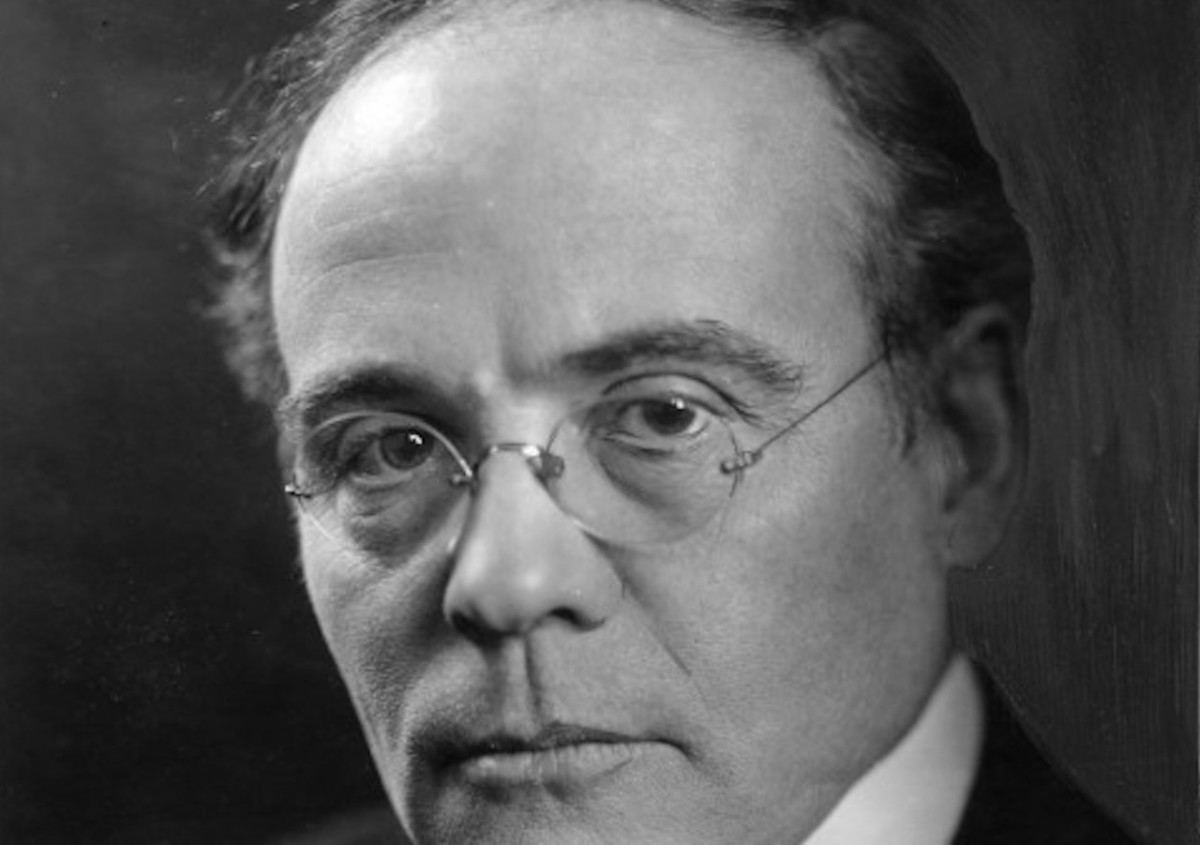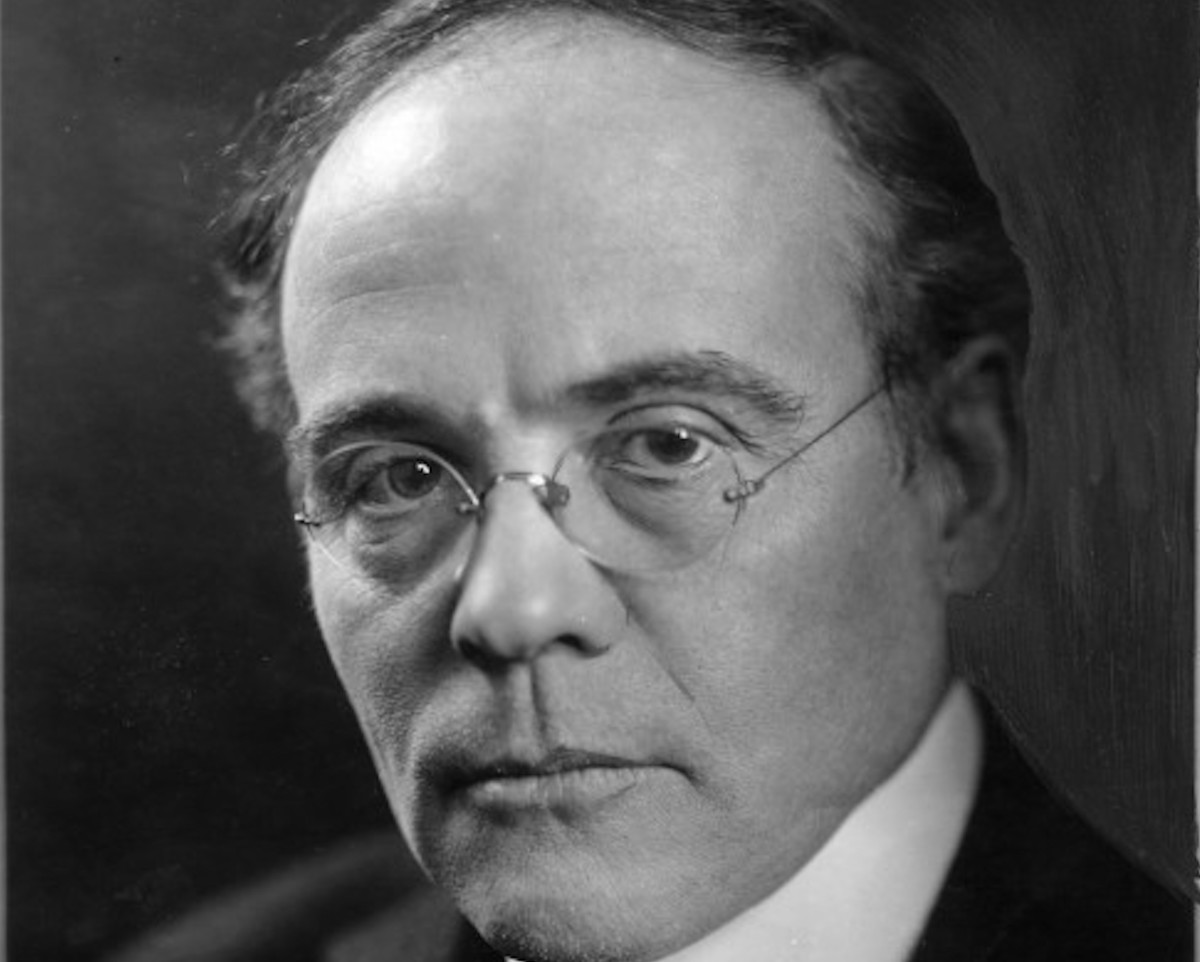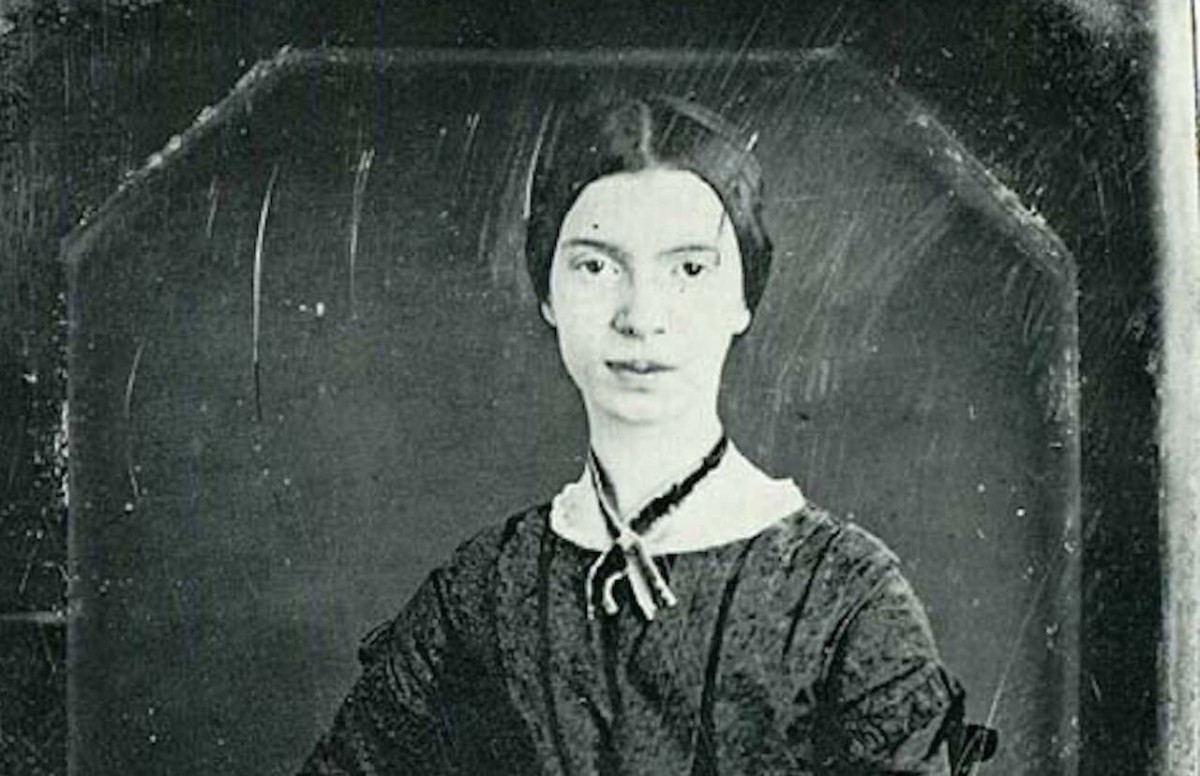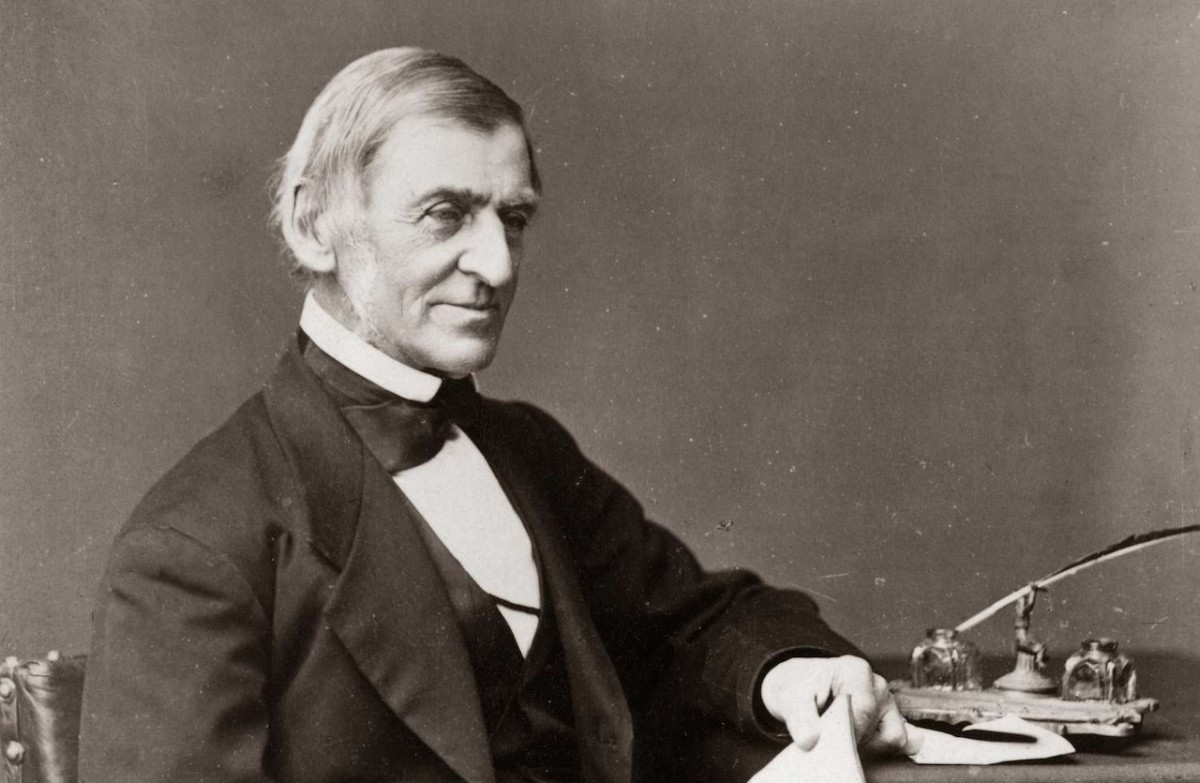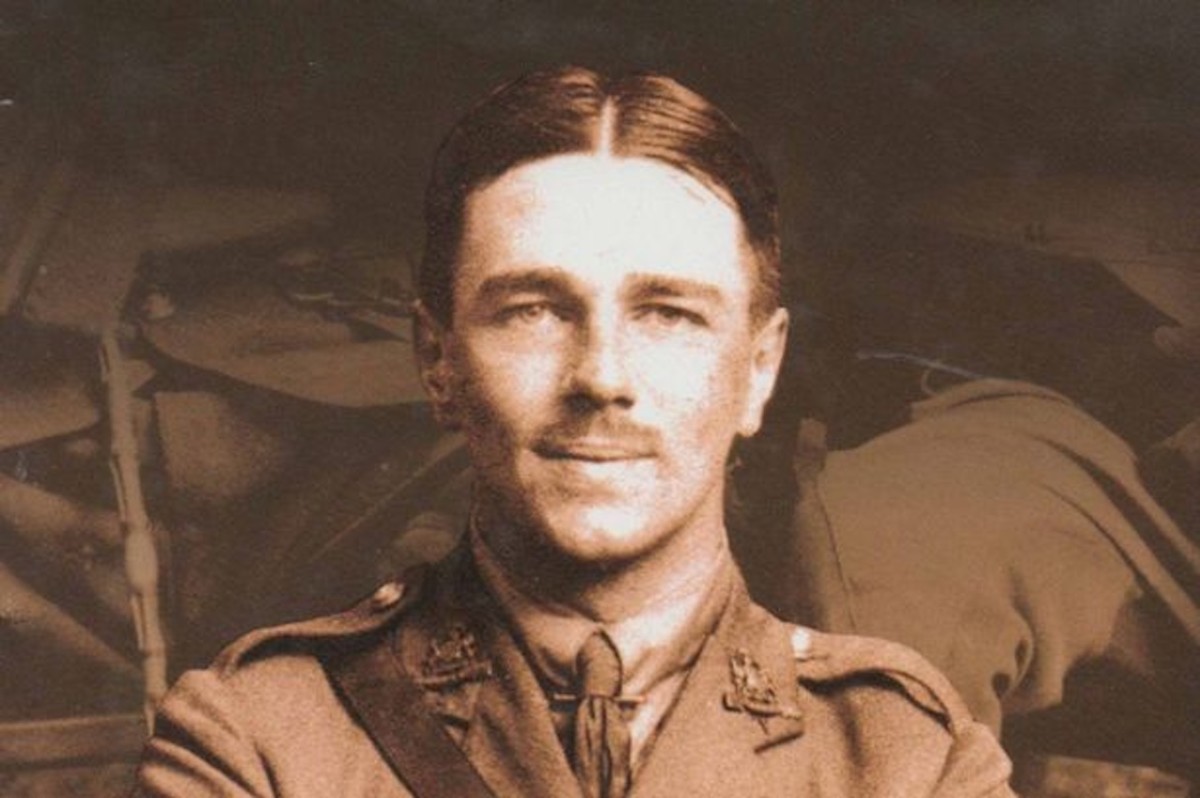Edgar Lee Masters’ "William and Emily"
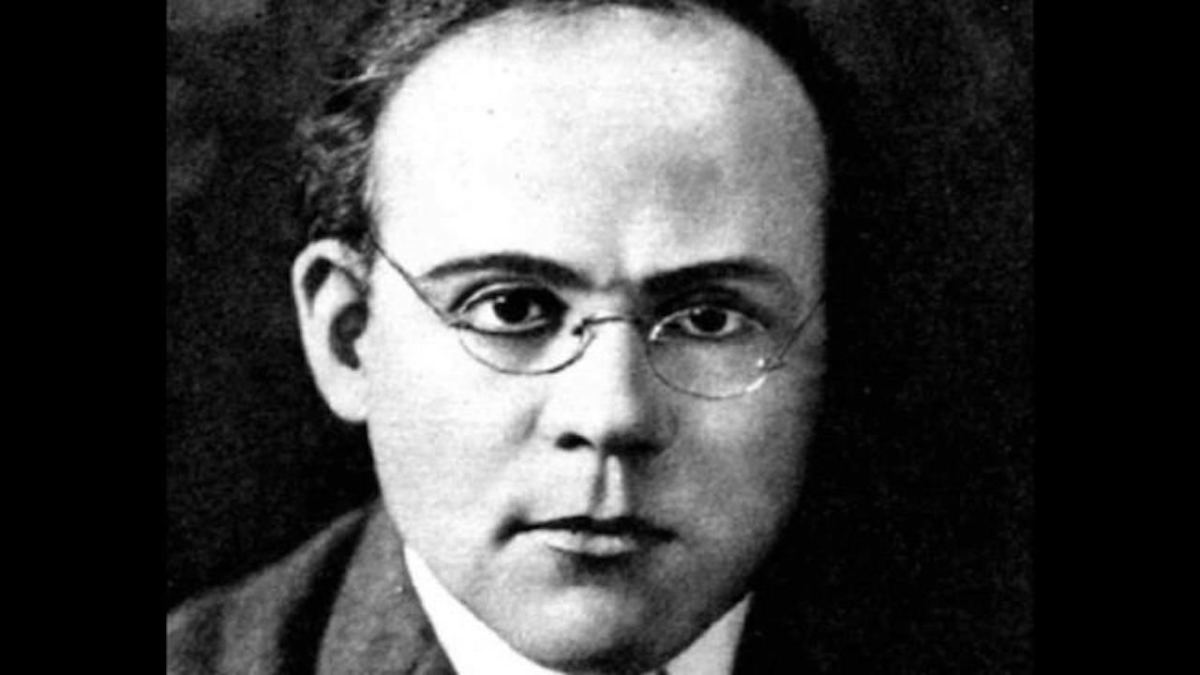
Introduction and Text of "William and Emily"
In Edgar Lee Masters’ "William and Emily" from Spoon River Anthology, and American classic, the speaker makes a profound statement about the cessation of passion in a marriage. It is quite likely that he does so unwittingly.
William and Emily
There is something about Death
Like love itself!
If with some one with whom you have known passion,
And the glow of youthful love,
You also, after years of life
Together, feel the sinking of the fire,
And thus fade away together,
Gradually, faintly, delicately,
As it were in each other’s arms,
Passing from the familiar room—
That is a power of unison between souls
Like love itself!
Commentary on “William and Emily”
The speaker’s epitaph is titled, "William and Emily," with no details offered about the pair. But the gravity of the message is unique and interestingly appropriate.
First Movement: Death and Love
There is something about Death
Like love itself!
The speaker begins with an intriguing proposition, vaguely offering, "there is something about Death." Don’t we all know that? We dread it, we crave it, we mostly wonder about it, but yes, dude, there is definitely something about "Death."
What the reader is not expecting is that someone would assert that death is "like love itself."
Readers have come to expect all sorts of nonsense from the residents, or might one say, inmates of the Spoon River cemetery. So when one of them asserts that death and love have something in common, readers might not blink an eye, as they curiously wait to find out what this dude thinks death and love have in common.
Second Movement: Reason Is an "If"
If with some one with whom you have known passion,
And the glow of youthful love,
You also, after years of life
Together, feel the sinking of the fire,
And thus fade away together,
The speaker then offers his reason for making such a statement that love and death have something in common. The curious speaker begins with an "if" clause—if you have known someone with "passion" and "the glow of youthful love," but you start losing that fiery passion of youth.
Third Movement: A Fiery Thought
Gradually, faintly, delicately,
As it were in each other’s arms,
Passing from the familiar room—
That is a power of unison between souls
Like love itself!
The speaker then breaks the fiery thought. This slow loss, "Gradually, faintly, delicately" builds up a drama that might have easily been glossed over. It is a cliché that sexual passion fades with the age of the paramours, but if it is lost slowly, the loss takes on a different context.
The cessation of violent sexual passion between two individuals is scheduled by nature to occur. That cessation allows room for the spiritual bond between them to flower. After all, sexual passion has only one true purpose—to create other human beings.
Once the physical ability to give birth has passed, there is no longer a need for sexual passion, even though, as many erroneously believe otherwise, the ability to be sexually aroused does not subside, unless, of course, there are health issues.
Perfectly healthy octogenarians are as capable of basking in the "glow of youthful love" as they were in their twenties, thirties, etc,—but should they? What do they lose if they do?
Fourth Movement: Soul Unity
That is a power of unison between souls
Like love itself!
They lose "the power of unison between souls"—a man who continues to pound his wife as a sex object past the age of the ability to conceive and spawn offspring can hardly be considered a soul-living creature.
The main purpose of sexual coupling long past, all that is left is that "shudder in the loins" that speaks only one word, "selfishness." Or perhaps two words, "selfish ignorance." It is the "power of the unison between souls" that speaks to the union with "love itself."
So what is there about "Death" that is like "love itself"? God is love—pure love: not sex, not physical passion that leads to procreation, which is only a tiny aspect of God. As the human being grows older, s/he becomes more aware of the necessity of knowing God.
After procreating, the human body/mind has only one true, dual-pronged purpose: to pursue and find itself as a soul connected it to the OverSoul, or God. After the human being leaves the body/mind at "Death," it craves only the company of its Creator.
A little preparation beforehand is always advisable on this mud ball of planet Earth.

Related Edgar Lee Masters Information
- Life Sketch of Edgar Lee Masters Edgar Lee Masters’ American classic Spoon River Anthology brought the poet into the literary spotlight, and no other work from his extensive writings has attracted more attention, including his sequel to Spoon River The New Spoon River.
Commentaries on Edgar Lee Masters Poems
- Edgar Lee Masters’ "The Hill" The poem "The Hill" opens Edgar Lee Masters’ American classic Spoon River Anthology, which is told in a series of dramatic epitaphs by the deceased residents of Spoon River, an imaginary town in Illinois. The work might be considered a character study in poetry.
- Edgar Lee Masters’ "Hod Putt" Hod Putt considered himself a loser in life, but he envied those who were successful.
- Edgar Lee Masters’ "Fiddler Jones" and "Barney Hainsfeather" Fiddler Jones is one of the less melancholy figures of Spoon River, though he has his trials as well. Barney Hainsfeather's epitaph reveals a unique complaint of a man who laments being buried in the wrong cemetery.
- Edgar Lee Masters’ "Robert Fulton Tanner" Fulton is a pathetic character, who discovers that literally building a better mouse trap might only provide a cliché to fling at this thing vaguely called "Life."
The "Minerva Jones" Sequence
- "Minerva Jones" The "Minerva Jones" epitaph features one of the most depraved characters of the Spoon River talking dead. She is self-absorbed and haughty, lacking empathy and self-awareness, causing her to remain ignorant of her own discordant thoughts.
- "'Indignation' Jones" In the second epitaph of the "Minerva" series, the poetess’ father, "Indignation" Jones, fulminates against Spoon River society.
- "Doctor Meyers" The third epitaph in the Minerva Jones series features "Doctor Meyers," who performed the abortion that led to the death of the unfortunate poetess.
- "Mrs. Meyers" In the fourth epitaph in this series,"Mrs. Meyers," Dr. Meyers' wife testifies that her husband, whom she calls "poor soul," reaped what he sowed for his actions in life. The religious woman offers advice for a pleasant and peaceful life, reminding humanity to "Love God and keep his commandments."
- "'Butch' Weldy" The fifth and final epitaph "'Butch' Weldy" concludes the "Minerva" series. Butch declaims about his ordeal after a work related accident—with nary a nod to Minerva.
The Pantier Sequence
- "Benjamin Pantier" and "Mrs. Benjamin Pantier" Unbridled arrogance, overweening vanity along with cowardly weakness have combined to bring about the destruction of the marriage of Mr. and Mrs. Benjamin Pantier. The husband appears to be weakling allowing himself to be cowed by his wife, an arrogant bully.
- "Reuben Pantier" Reuben Pantier's colorful character helps dramatize the power of spiritual love for healing the mind, heart, and soul, even through the distance of miles and decades. Reuben is the son of the dysfunctional couple Mr. and Mrs. Benjamin Pantier.
- "Emily Sparks" The epitaph "Emily Sparks" in Edgar Lee Masters’ American classic Spoon River Anthology is the fourth entry in the sequence of five epitaphs featuring a dysfunctional couple, their son, and the latter’s influential mentor.
- "Trainor, the Druggist" Edgar Lee Masters’ "Trainor, the Druggist" from the American classic Spoon River Anthology offers a final installment covering the pitiful story of the Pantiers: Mr. and Mrs. Benjamin Pantier and their son Reuben.
This content is accurate and true to the best of the author’s knowledge and is not meant to substitute for formal and individualized advice from a qualified professional.
© 2025 Linda Sue Grimes

